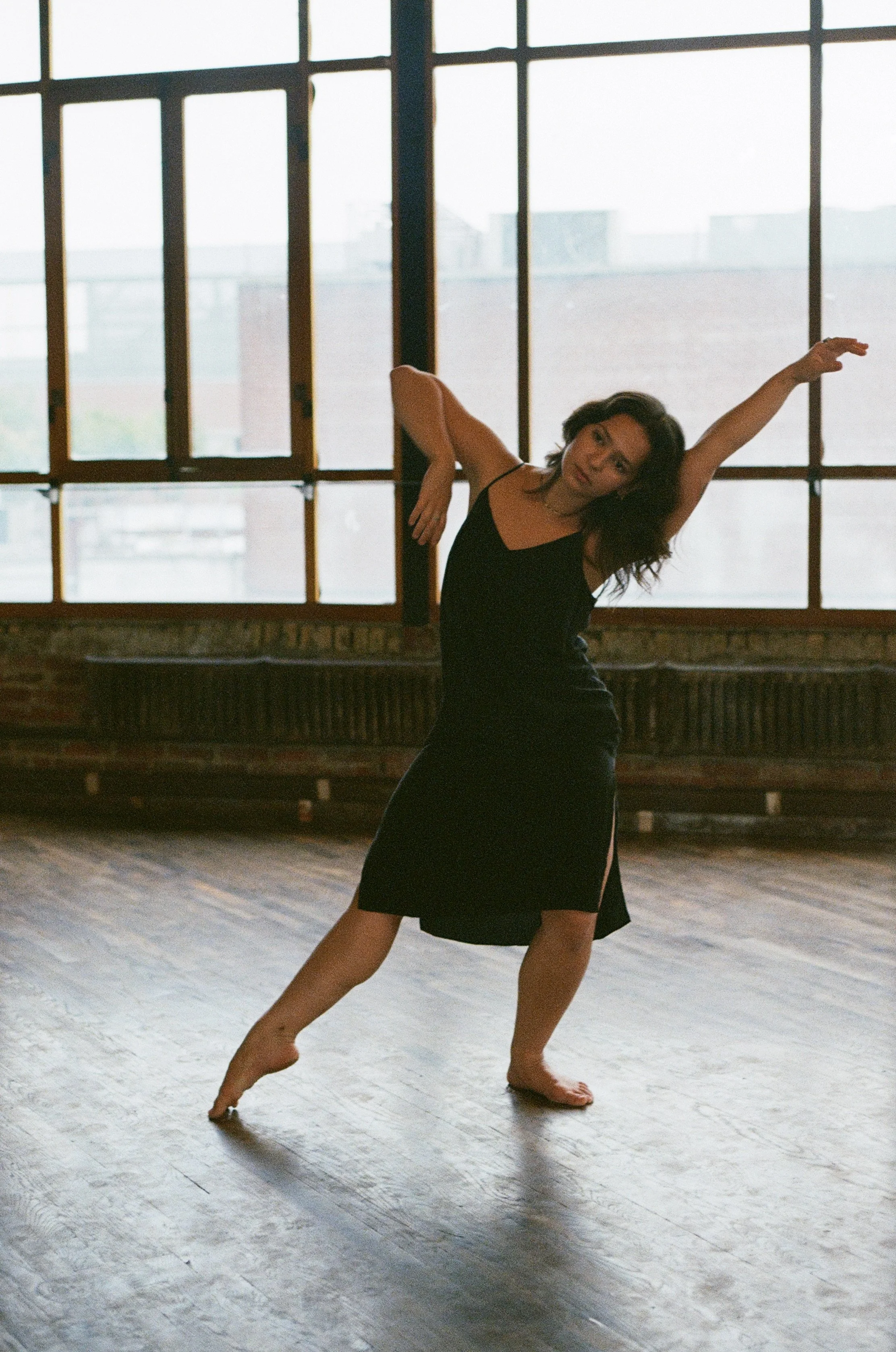About Me
Rosie Elliott is a New York-based dancer, choreographer, researcher, and dance educator dedicated to creating inclusive, affirming, and community-rooted dance spaces. Since 2018, Rosie has made choreographic work for stages, screens, and community settings, with professional commissions from the Knight Foundation and Queer the Ballet.
As Director of Education at Queer the Ballet, Rosie consults on curriculum development and pedagogical programming designed to increase LGBTQ+ visibility in ballet. Before joining the company, they founded the REmove Collective, a platform supporting trans, queer, and gender non-conforming dancers through performance, workshops, and community dialogue.
Rosie’s research explores trauma-informed dance pedagogy. Their article, “Facilitating ‘Corrective Experiences’ with Ballet: The Site of Trauma as the Site of Healing,” was recently published in the Journal of Dance Education. This fall, they began their MA in Dance Education, deepening their study of progressive pedagogical methodologies for community-based, school, and pre-professional settings.
Rosie holds a BA in Dance and Gender Studies from Barnard College of Columbia University, where they performed works by Trisha Brown, Christopher Rudd, Dual Rivet, Wesley Ensminger, and Roderick George. While at Barnard, Rosie choreographed an original ballet for the Columbia Ballet Collaborative and completed a creative residency at the Barnard Movement Lab, where they investigated improvisation, play, and risk-taking as tools for choreographic and personal transformation.
Before moving to New York, Rosie graduated from New World School of the Arts in Miami, Florida, where they trained intensively in ballet, modern, and contemporary dance. There, they performed repertory by Ohad Naharin, Paul Taylor, Yara Travieso, and others. Their high school choreography was recognized with multiple awards, including a performance of their piece The Waves (2018) at the 92nd Street Y’s DanceUp Student Choreography Showcase.
At the heart of Rosie’s practice is a belief that dance is both a rigorous discipline and a radically playful act. They are passionate about activating people’s artistry, creating access to movement, and building spaces where all dancers can connect deeply with their own bodies and each other.


